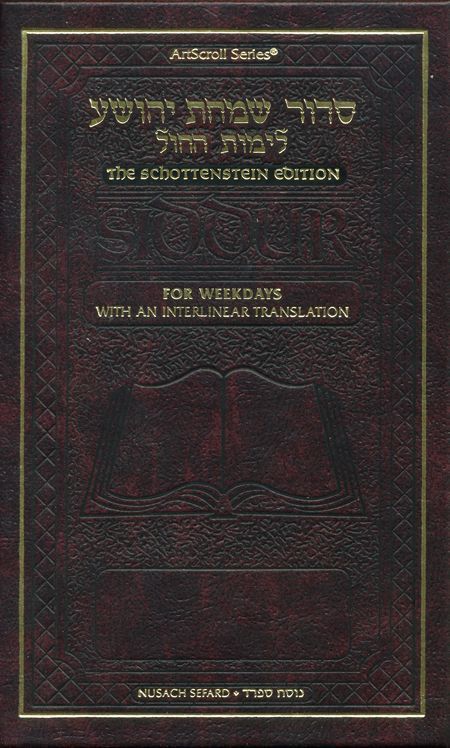
Through Faith
But the man on the wagon shouted again, “You can do it. You just don’t want to!” When the Tzaddikim heard these words, they understood...

Through Faith – Everything is Returned to its Source
But even when the Shechinah is in exile and the heavens are covered with darkness, we can reduce the darkness and hasten the Redemption through faith. We must strengthen our belief that all events of our lives, and everything we see around us, is from God, and that He alone runs the world. Even when our intellect is troubled by questions, we can strengthen our belief that ultimately the questions are not questions and that even the most disturbing events of our lives contain wondrous secrets that will be revealed to us in the World to Come. Only then we will truly understand how beautiful and just are God’s ways, and how everything is directed by His providence in perfect accordance with His wisdom.
By living in this world with such a belief, a person can elevate himself to his source, and he can also elevate the Shechinah to its Source in the wisdom of God. Eventually, when the Temple will be rebuilt and God’s glory fills the world, such a person will be able to point to his role in the restoration of God’s kingship. “The stone that was scorned by the builders has become the headstone for the corner” (Tehillim 118:22), said Dovid Hamelech (King Dovid); according to Kabbalah, he was referring to the elevation of the Sefirah of Malchut (“the stone”) to its proper place. So too at the Redemption, every individual will be able to point to the aspects of his life that were “scorned by the builders” because they didn’t’ conform to the prevailing sense of justice. But when he strengthened his belief that they were an expression of God’s providence and wisdom, he lifted up these “stones” and gave them a prominent place in the restoration of God’s kingship. When a person has faith in God, he can elevate himself and the entire creation to its source in God’s wisdom.
With this we can understand the teaching of the Zohar that “teshuvah” means tashuv hey – “returning the letter hey (the last letter in God’s Name) to its place” (Raya Mehemna 122a. See Likutey Moharan I:49,6), for the last letter in God’s Name corresponds to Malchut, the last of the ten Sefirot. When we recognize that everything that happens to us is an expression of God’s wisdom, we reunite Malchut with all the higher Sefirot and with its source in the first Sefirah, Chochmah. This can truly be called teshuvah, for it returns the entire creation to its Source.
These ideas are alluded to in the name “Yaakov” (Jacob), which can be split into two parts: the letter yud, and word eikev – “heel.” The heel, which is the lowest part of the body, represents Malchut, which is the lowest of the Sefirot. The letter yud, the first letter in God’s Name, corresponds to Chochmah, the first of the ten Sefirot. Hence the avodah (Divine service) of Yaakov, and of every Jew, is to recognize that all the events of the world are directed by Divine providence (Malchut) in accordance with God’s wisdom (Chochmah).
Through this avodah, a Jew can reach an even higher level, which is alluded to by the name Yisroel (Israel, another name for Yaakov). For the letters of the name Yisroel are the letters of the words li rosh, “(he is) to me a head.” In other words, through the avodah of “Yaakov,” a Jew can ascend to his source in God’s wisdom. All this – the avodah of Yaakov and the avodah of Yisroel are included in the process of teshuvah, the process of returning the letter hey to its proper place.
To Lift up the Hay… (a Story)
For a long time, the two brothers, Rabbi Elimelech of Lizensk and Rabbi Zusia of Anipoli, both great Tzaddikim, would spend their days and nights traveling through the fields and hamlets of the Polish countryside, serving God with hitbodedut, prayer, and other awesome, hidden avodot whose holiness is beyond our ability to imagine. Once, as a result of their spiritual and physical exertions they were too exhausted to walk, or even to stand, and so they lay down near the side of the road. As they were waiting to regain their strength, a wagon loaded with hay passed by. One of the bundles fell to the ground not far from where they were resting. The wagon came to a halt and the driver called out to them, “Pick up the hay and throw it back!”
“We can’t,” they replied. “We are too weak.”
But the man on the wagon shouted again, “You can do it. You just don’t want to!”
When the Tzaddikim heard these words, they understood that it was a message from heaven – for the Baal Shem Tov taught that a person can derive a lesson in avodat Hashem from everything he sees or hears. The message was: “Throw the letter hey back to its source, lift up the Divine attribute of Malchut, and bring the Shechinah out of its exile. You can do it if you want to.”
After this encouragement from heaven, the two brothers felt their strength returning, and they resumed their holy avodah with new energy and enthusiasm (Pri Tzaddik, vol. 3, p.33, relates a slightly different version of the story in the name of Reb Zusia himself).
Each Part Contains the Whole
Rav Saadiah Gaon wrote that all 613 mitzvot of the Torah are included in the Ten Commandments (Tikkunei Zohar #21, 43b, and 60a; tikkun #64, 86b; and in the tikunim at the end of the Zohar Chadash 109b). The Baal Shem Tov took this idea further and taught that every word of the Torah includes the entire Torah, and every mitzvah includes all the other mitzvot (As mentioned in Rashi on Shemot 24:12. The idea appears also in Bamidbar Rabbah, 13:16). This idea is reflected in a brief prayer that we say before performing certain mitzvot (such as donning tefillin): “For the sake of the unification of the Holy One, Blessed be He, and His Shechinah… I intend to fulfill this mitzvah… May it be considered before God as if I fulfilled it in all its details, with all the proper intentions, and with all the 613 mitzvot that are united with it.”
While the interrelatedness of the entire Torah is not always apparent, there are a few mitzvot in which it is possible to see it clearly. It is easy to understand, for example, why all the mitzvot depend on the mitzvah of “You shall fear the Lord, your God.” The famous work, Sefer Yerayim, discusses the connection between a number of mitzvot and the commandment to fear God, which is probably why the work was titled Sefer Yerayim, “The Book of Those Who Fear God.” It seems that the author was a Tzaddik who felt a tremendous fear of God, and his soul was rooted in the Divine attribute of fear (Gevurah). Since the midah of gevurah was the basis for his relationship to God, it was reflected in the way he understood the entire Torah and performed all the mitzvot.
Other Tzaddikim are filled with a love for God that is reflected in everything they learn and in all their mitzvot. Their souls are rooted in the Divine attribute of love (chesed), and they view every commandment as an opportunity to express their love for God. Even when they refrain from sinning, it is not because they fear punishment, but because they love God so much that they could not bear to do anything against His will.
However, even a Tzaddik whose soul is rooted in the midah of love (such as Avraham [Abraham]) must also use the midah of fear. And even a Tzaddik whose soul is rooted in the midah of fear (such as Yitzchok [Isaac]) must also use the midah of love. We see this in the story of the Akeidah, when Avraham perfected himself by serving God with the midah of gevurah.
The verse says, “And Yitzchok said to his father, Avraham, ‘My father.’ And he said to him, ‘Here I am, my son’” (Bereishit 22:7). The commentators explain that when Yitzchok expressed himself with the words, “My father,” he was including himself in Avraham’s midah of love. And when Avraham answered, “Here I am, my son,” he meant, “Now I am acting with my son’s midah of gevurah.” For a person needs to serve God with all the midot in order to be complete (See Zohar 1:119b – 120a).
This is also hinted at in the verses that describe the first meeting between Rivkah (Rebecca) and Yitzchok (Bereishit 24:64-65) (Peninei Chasidut, in the name of R.Shalom of Belz). When Avraham’s servant, Eliezer, brought Rivkah to meet her future husband, Yitzchok, she saw him at a distance as he was walking in the field. She was so overwhelmed by his presence that she exclaimed, “Who is this man?!” What she really meant was, “Who could possibly live with this man who is so frightening? He radiates so much fear of God! He is so full of power and strictness!” And so Eliezer answered her: “He is my master.” In other words, “True, Yitzchok embodies the fear of God, but he is also included within the midah of my master, Avraham – the midah of love.” Yitzchok’s gevurah was controlled and moderated by Avraham’s chesed.
Teshuvah Includes Every Aspect of Avodat HaShem
Teshuvah is another mitzvah which clearly includes within it all the other mitzvot. For teshuvah – returning to our source in God – is the purpose of everything we do in the world. A soul descends into this dark and confusing world only in order to cling to God, and to return to its Source. Hence everything we do, every mitzvah and every avodah, ought to be done with the intention that it is “for the sake of teshuvah” – for the purpose of clinging to God.
When a person lives with this awareness, he can conduct his entire life in a state of teshuvah. He can study Torah in order to do teshuvah, he can pray in order to do teshuvah, he can refrain from sinning in order to do teshuvah, and when he is tested by God, he can stand firm and resolute with all the power of teshuvah. Through this, he can repair all the damage he did in the past when he failed God’s tests. Every positive and negative mitzvah is included in the process of teshuvah. As Rebbe Nachman said, the essential idea of teshuvah is to return to one’s Source and to cling to it, and to be on constant guard, lest the frivolities of this world separate us from God, who is the Source and Root of everything.
A Seeker of God
After Jerusalem was destroyed by the Romans, Yavneh became the new center of Torah scholarship in Eretz Yisroel. For the opening session of the yeshivah in Yavneh, Torah scholars and students arrived from all parts of the world. The Gemara tells us that Rabbi Yehuda bar Iloy, Rabbi Yossi, Rabbi Nechemiah, and Rabbi Eliezer the son of Rabbi Yossi HaGalili addressed the yeshivah (Baal Shem Tov al HaTorah, parshat Yisro, section 8). All of them began with words of praise for their hosts – the local residents who had opened their homes to the Torah scholars – except for the first speaker, Rabbi Yehudah, who began with words of praise for the Torah scholars who had traveled from afar.
This is what he said: “The Torah tells us that after the sin of the Golden Calf, ‘Moshe took the Tent of Meeting, and set it up outside the camp… and every seeker of God would go out to the Tent of Meeting…’ (Shemot 33:7). We know that in order to reach the Tent of Meeting, a person never had to travel more than about twelve mil (approximately eight miles), since the whole encampment of Bnei Yisroel in the desert was only twelve mil from end to end (See Rashi on Numbers 33:49). Nevertheless, the Torah refers to such a person as a ‘seeker of God.’ If so, a Torah scholar who wearies his feet by traveling greater distances – from one city to another, and from one country to another – in order to study Torah should certainly be called ‘a seeker of God.’”
It is obvious that Rabbi Yehudah regarded the term “a seeker of God” as a title of great distinction – and we can understand why. When a soul descends into this world, it is immediately beset by animalistic desires and character traits that are constantly trying to sever its connection to God. The situation in which the soul finds itself is so perilous that, after a lifetime in this world, many souls are encumbered with a layer of spiritual impurity that can only be removed by punishments in the next world. But if in the midst of this whirling, stormy darkness, a person remains strong in his determination to search for God, repair himself and all the heavenly worlds, and he can bring the world closer to its ultimate perfection.
Thus the term “a seeker of God” sums up our purpose in this world. It includes every aspect of Judaism – Torah study, prayer, and mitzvot – for they are all ways in which we search for God in order to cling to Him. And to the extent to which we search for God, that is the extent to which God will respond to us with the light of His Countenance. As Rabbi Shimon bar Yochai said about himself before he left the world: “’I am for my beloved, and his desire is for me’ (Shir Hashirim 7:11). During all the days when I was in this world, I was bound together with the Holy One, Blessed be He, in a single, indivisible bond, and now (as a result of my attachment to Him,) ‘His desire is for me’” (Zohar 3:288a).
And so it is, on a lower level, with each of us. If we search for God and try to find ways to be close to Him, God will find ways to be close to us, and He will illuminate us with His light.
What are You Looking For?
When Yosef (Joseph) was sent by his father to join his brothers, the Torah writes: “A certain man found (Yosef) as he was wandering in the field, and the man asked him, ‘What are you looking for?’” (Bereishit 37:15). According to the Sages, this man was the angel Gavriel, (Berachot 63b) and according to Rabbi Menachem Mendel of Kotzk, (Rashi on this verse, s.v. “vayimtza’eihu ish.”) the angel’s words were a lesson in avodat HaShem.
The lesson was: As you go through life, you should always ask yourself the question: “What am I looking for?” If you don’t want to lose your way in this world, you must always think carefully about where you are, and what you are trying to find. Are you looking for God or for something else?
We must do everything in our power to remain attached to our Source. If we continually search for God, we will live a life of teshuvah, which is the very purpose for which we came into this world.
To be continued…
(Excerpt from The Scent of Gan Eden, by Rabbi Yaakov Meir Shechter, Keren Ohr Publications. Used with author’s permission.)











Tell us what you think!
Thank you for your comment!
It will be published after approval by the Editor.